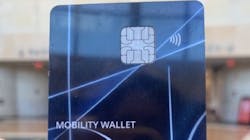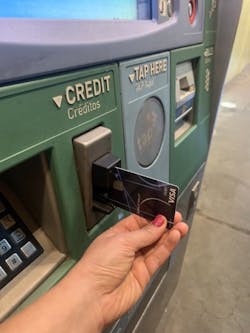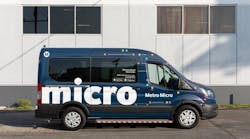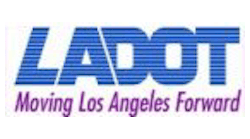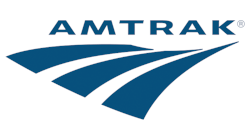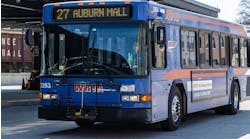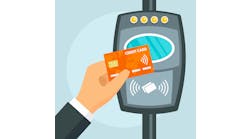In May, the Los Angeles County Metropolitan Transit Authority (L.A. Metro) and the Los Angeles Department of Transportation (LADOT) launched the first phase of its Mobility Wallet (MW), a pilot program oriented to the community of southern Los Angeles that provides an all-in-one way to pay for multiple modes of transportation.
The MW is a prepaid debit card that is loaded with $150 per month for 12 months (May 2023 to April 2024) that allows one person or several members of the same household to pay for public or private transportation.
MW allows riders to ride all public transportation, including buses, trains, bike shares and Metro Micro vans, as well as regional transportation such as Metrolink and Amtrak, private buses such as Greyhound and Flix Bus and shared rides such as Uber and Lyft. Customers can also use the card to pay for trips on the FlyAway, rent scooters and pay for services or products in bicycle shops.
“The MW card has been very helpful to us. I use it to take the bus or train to DTLA and the supermarket. My mother uses it to take a taxi and come back home safely,” said Rebeca Hernández, a 37-year-old MW customer whose mother works in a laundromat until late at night. “She takes transit, but when my car broke down, I wasn’t able to go pick her up anymore. It gave me anguish because there are many encampments at night around where we live. The bus stop is eight blocks away from home, and the train station is about six. Now, if she has to leave at 11 p.m., she takes a taxi and that makes me feel calmer.”
Since its launch in May 2023, more than 1,000 debit cards have been distributed to people who make lower incomes, with 900 people selected through the online application process while 100 were signed up during eight in-person bilingual MW workshops held in conjunction with community-based organizations, according to Avital Shavit, L.A. Metro’s senior director of strategic innovation.
From May 1 to July 18, 9,485 transactions were completed using MWs. When participants receive the card, it has to be activated before use. If a participant doesn’t spend the entire $150 balance within a month, the funds roll over to the next month. Participants must be at least 18 years old to qualify in addition to meeting eligibility requirements, such as self-certifying their income and living in one of 10 qualifying southern Los Angeles zip codes.
“The geographic area to qualify has been identified as a federal transit empowerment zone,” Shavit explains “This area has been identified as a place that needs additional transportation. It also concentrates a high percentage of people who make lower incomes and who are transit-dependent.”
The areas chosen for the MW are home to a population of more than 370,000 people, with 29 percent of households below the poverty level, according to transportation authorities. More than six percent of households do not own a vehicle and 30 percent only have one car at home. The majority of the residents are people of color, with two-thirds Hispanic and a quarter African American.
Andre Parvenu is part of the latter group. He recently lost his vehicle in a traffic collision and now uses public transportation all the time. The 63-year-old lives in the 90043 zip code, an area that qualifies for the program. After signing up, he received a prepaid card in May. The program has allowed him to commute on the bus or train to get to his job interviews.
“I think the program is wonderful and it has helped me. I like the authorities are looking for innovative ways to increase mobility and make traveling easier for people who are transit dependent,” Parvenu said.
Parvenu adds he had never traveled on Amtrak because the fare tickets were out of his budget. However, now that he has the MW card, he wants to visit Sacramento soon.
Hernández, who has family in Utah, agrees.
“Tickets are expensive and sometimes you have to choose between vacationing or saving. Now, I think it will be possible to go visit them,” Hernández said.
The program, which is a collaboration with the city of Los Angeles and the California Department of Transportation’s California Integrated Travel Project, has a $13.8 million grant from the California Air Resources Board and $2 million in funding from LADOT. The state has also awarded a grant to the University of California, Los Angeles and the University of California, Davis, two entities that are helping L.A. Metro and LADOT evaluate the pilot program.
“We are looking at ways to see how we can expand the program. MW has been identified as a project that could be supported throughout LA County in preparation for the 2028 Olympics,” Shavit said.
The second phase of the program is planned to launch this winter.
